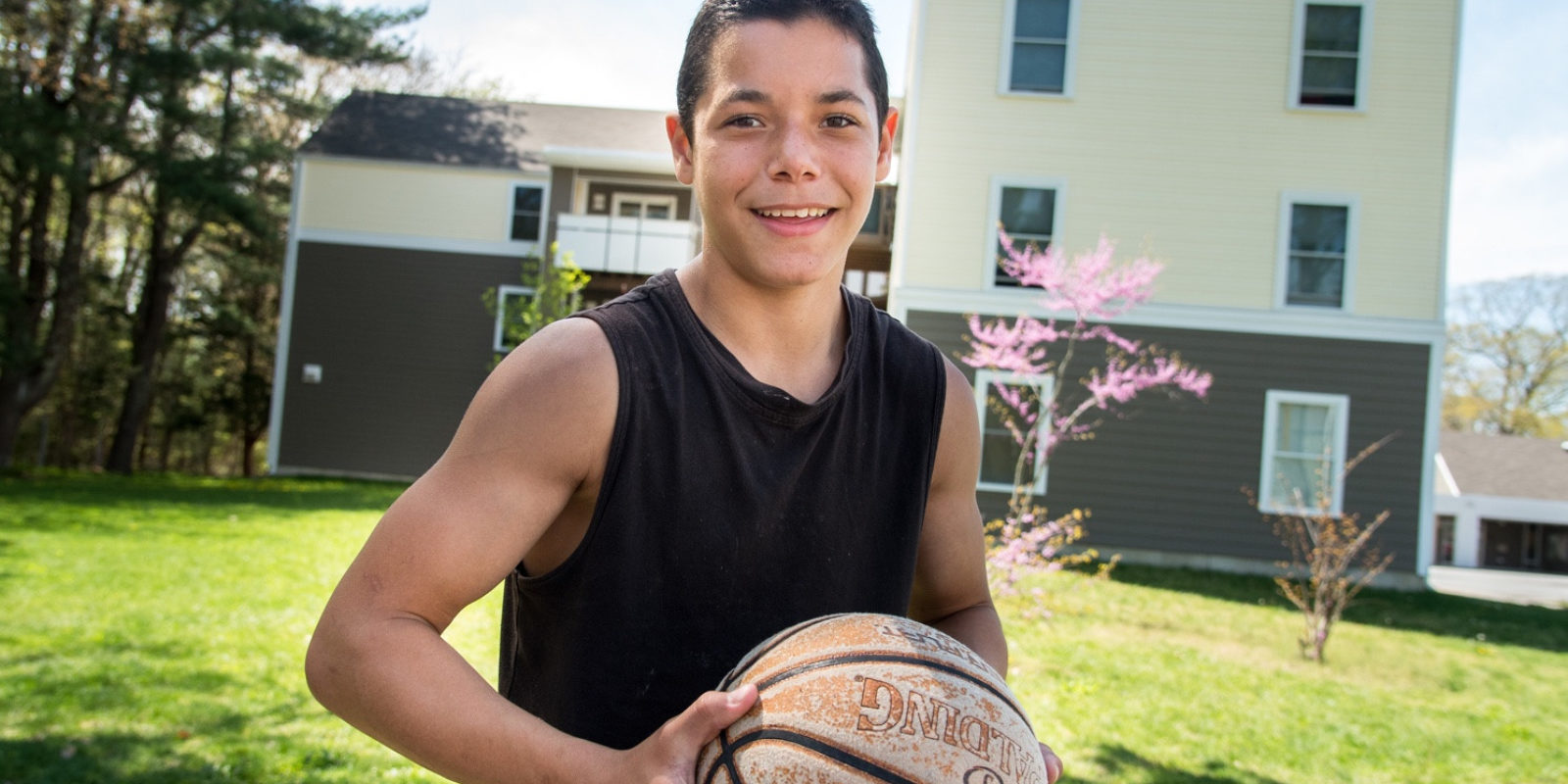For families who have experienced homelessness, finding stable housing is just the first step towards rebuilding their lives.
July 17, 2023
“Kids need more than just a roof over their heads in order to thrive,” explains Jill Cronin, Director of Housing at Kingstown Crossings, a 104-unit permanent supportive apartment complex owned and managed by Crossroads Rhode Island in North Kingstown, Rhode Island.
Addressing Unique Challenges
According to Cronin, many of the families that live at Kingstown Crossings are led by a single mom with a variety of challenges including intergenerational poverty, homelessness, mental health issues, trauma, and/or substance use issues. These factors make it difficult for parents to provide structure and stability in the home.
Structured Activities Support Social and Emotional Growth
That’s why Cronin and her team prioritize creating regular community engagement opportunities such as field trips to the local bowling alley, making pottery at Clay ground and conducting sports camps for the 180 formerly homeless children and their families who live at Kingstown Crossings, a quiet, tree-lined community not far from the beaches in South County. A Family Fun Day and cookout is already planned for August and karate lessons will be offered in the Fall.
“Homelessness is a very traumatic experience for children, who are often too young to truly process what is happening,” explains Cronin. “Fear about family separation, not knowing where they’re going to sleep at night, difficulties at school and a desire to fit in all contribute to emotional distress, particularly depression. Providing structured activities that help these children feel safe and included is absolutely critical to their social and emotional growth.”
Learning Important Life Skills
For example, Cronin shares the story of Trevor, a 12-year-old boy who lacked a strong role model and struggled with impulsive behavior.
“Trevor and his three siblings had been homeless for a while before moving to Kingstown Crossings,” she recalled. “His dad wasn’t in the picture and his mom, who had a history of trauma, really struggled with mental health issues. Trevor didn’t have a lot of family support so he got into a lot of trouble and was disrespectful to other tenants on the property.“
Fortunately, while participating in the community’s five-week basketball camp Trevor formed meaningful friendships and felt included for probably the first time in his life.
“Learning how to play basketball taught Trevor important life skills like teamwork, problem-solving and competitive respect,” Cronin said with a smile, “all of which really improved how he interacts with others at Kingstown Crossings.”
Breaking the Cycle of Homeless
Cronin acknowledges that it takes a lot more than a basketball clinic or a cookout to help families recover from the trauma of homelessness but coupled with safe and affordable housing and ongoing case management, it’s a good start.
Once families have been stabilized in housing, structured community engagement activities like those taking place at Kingstown Crossings help formerly homeless families bond and develop meaningful connections with their neighbors, rebuild their support network and strengthen their connection to a place. Ultimately, creating a stronger community helps formerly homeless families break the cycle of homelessness, shaping a brighter generation for generations to come.

